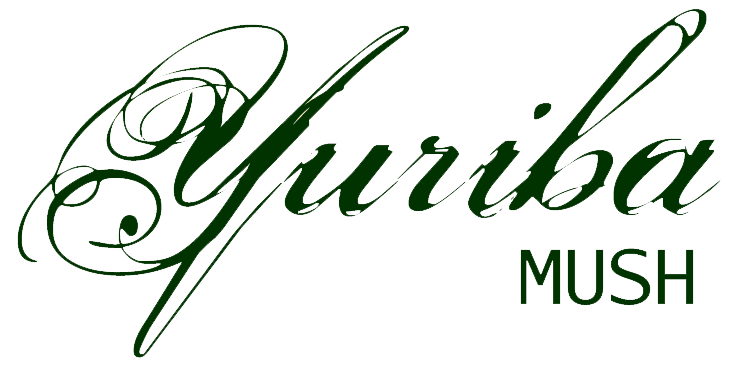Oread
| OOC: RP Notes |
| This entry is intended mostly as a springboard for players interested in playing a native oread. What's been laid down should be taken as a guideline to be built upon by oread players. This race hasn't been touched upon save for this entry; you as a player are free to build on what's here however you like. |
Oreads are earth spirits often derived from Greek mythology but also resident in Yuriba. Though the name "oread" is of Greek origin it has come to be used to describe the earth and mineral spirits living on the island, as their natures have many similarities. The oreads form one of the major Yuriban cultures.
Contents |
Physiology
Oreads are spirits of nature and thus exist as the physical manifestation of the spirits representing parts of the landscape. An oread will inevitably be spiritually connected to some feature of a landscape. They are often bound to mountains, valleys, caves, ravines, and even specific mineral crystals. However, it is not unusual for many oreads to reside in the same valley or on the same mountain, suggesting that each individual oread represents a different part of the geographical feature in question. Oreads are tied to rocks and gemstones, but never to metals.
In their physical manifestations they usually appear humanoid. Many take on the appearance of living statues, appearing to have been carved from rocks or gemstones, and are accordingly extremely heavy and possessed of great strength and constitution. This appearance is reflected in the forms granted by the Diaoxiangnyanniichuan. Other oreads take on a more conventional humanoid form, with real hair and skin. However, their physical forms seem to be subject to the whimsy and self-image of individual spirits - they are as varied in form as the dryads. Nevertheless, the presence of gem-like or stone-like qualities tends to be a common factor; eyes as bright as gems tend to be prevalent.
Oreads have a somewhat greater lifespan than most nature spirits. They live for about 1000 to 1200 years.
Culture and mannerisms
Oreads form a fair-sized Yuriban subculture, and are the only known subculture to have seen strong influence from foreign sources due to an influx of immigrant oreads displaced by the eruption of Mt. Vesuvius in 79 C.E.
They are not as numerous as the dryads but play a critical role in Yuriban society as the main race of builders and crafters. Their religious associations (see below) imbue oreads with a set of cultural values emphasizing hard work and fortitude, and most oreads are skilled in some form of craftswomanship. While oreads are fond of construction, they are also nature spirits, and as such they do not often build houses for themselves.
Of the Yuriban races oreads are the most fascinated with fashion and luxury goods, but they don't covet them out of greed - they collect them as expressions of art and personal skill at craft. Oreads can often be seen going about in fantastic and exotic garments in a variety of weaves, and elaborate jewelry is not uncommon among them. Most oreads weave their own clothes; as such, clothing for an oread is as much a fashion statement as it is a personal means of artistic expression and even a religious symbol. They practice their cultural need for craft and show off the results of that practice through their personalized wardrobes. Of course, they will also create goods for others; craft exists to be spread, after all.
Though the oreads tend to be somewhat more serious than the kitsune or dryads, they are not humourless, but they do tend to be more subtle about their mischief and playfulness. They are commonly seen by the other Yuriban cultures as quiet, trustworthy people.
Like most other races in Yuriba, oreads practice polyamory.
Due to the influence from immigrant Grecian and Roman oreads, oreads commonly use Greco-Roman names as use names, though they just as commonly seem to tend toward Gaelic and English for them with Japanese ones being less frequent than they are with the island's other groups. This naming practice also extends to the naming of their works of art and other enterprises. Often an individual oread's use name will reference a stone, gemstone, metal, or other mineral in some way. The common use of Greco-Roman names has increased somewhat more in recent years as immigrants bring the old Greco-Roman myths along with them to the Island and relate them to the native Oreads.
Aphorisms
A peculiar oread quirk is the occasional citing of workmanlike aphorisms, not necessarily spiritual in nature. Most often oread aphorisms espouse the virtues of industry, diligence, and craft, though there are other topics.
Selected aphorisms:
- You cannot find a diamond without digging.
- If you want perfection, make it yourself.
- Lives fade and reincarnate, but good work lasts forever.
- You can always tell a good woman by the quality of her craft.
- Good work is its own reward.
- Know your tools like your hands, for your hands are tools too.
- Half the effort brings half the delight.
- Don't try to do the work when you can do the work.
- You're never without your most important tools.
Religious association
Oreads are closely associated with Chikyuu, from whose modes of worship they derive their cultural fondness for craft. Their race is said to be heavily favoured by the goddess. While many oreads do worship other goddesses, most of these still hold Chikyuu close to their hearts. They will often build small workshop-temples to the goddess, allowing her to watch and bless their craft of choice.
